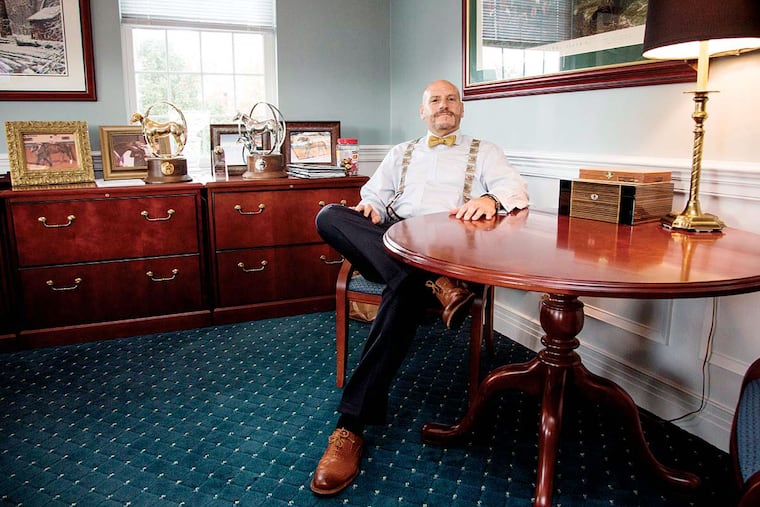Tony Weagley
When Anthony C. "Tony" Weagley, 54, fresh from selling his previous bank, joined Malvern Federal Savings Bank just over a year ago, the pressure was on.

When Anthony C. "Tony" Weagley, 54, fresh from selling his previous bank, joined Malvern Federal Savings Bank just over a year ago, the pressure was on.
Weagley, the new CEO, had better bring the bank along or get it ready to sell, the activist investor board members told him, loudly and clearly.
They aren't loud now. Maybe they've been quieted by a net income that rose from $323,000 in 2014 to $3.7 million in the fiscal year that ended in September.
"Part of it just comes down to performance," Weagley said. "If you're performing, it just gives you a little bit of strength to deal with" activist investors.
"The first thing I did when I got here, I called them up and said, 'I want to sit and talk to you.'
"I said, 'Let me tell you what I think is the problem here, what we need to do, and how I'm going to make you money, and just give me time.'
"When you ignore people, especially when they're the ones holding all the money, or you tell them to go away, that's wrong, and it just brings contempt and resentment. It's best to sit down and say, 'What is it we need to do here?' "
I guess they knew that you weren't averse to selling a bank. After all, you sold your previous bank, Center Bancorp, in New Jersey.
It was horrible.
Why?
Because that was my company. I spent 29 years building that company from $99 million to $2 billion. I spent my whole young life there. It was personal.
You never think of people being so emotionally attached to a bank.
I found somebody to talk to that had gone through a similar situation, and he helped me. I said, "I'm trying to be graceful about this, I'm trying to do the right thing." But it was gut wrenching. Your whole life, as you know it, is coming to an end. I was on the top of my game, but the problem was, I'd tripled the value of the company, so the people who invested were looking for their payday.
Hasn't it been hard for banks to make money, given the low interest rates set by the Federal Reserve? How have you managed to build Malvern's business?
You're catering to clients that are usually of higher net worth, or they're bringing larger loans. You're using those relationships to drive your business model, as opposed to, I'm just going to put an ad in the paper that I'm running a [certificate of deposit] special or waiting for people shopping in town to come into the bank.
Everybody wants rich clients, right?
Are you familiar with the Ardrossan Farms?
Isn't that the fabled Main Line estate that inspired the 1940 movie The Philadelphia Story, with Katharine Hepburn?
We had a cocktail party in the mansion. We sent invitations out to our clients, people we wanted to be involved in, and some of the investors. Everybody mingled. Everybody talked. I broke in at one point - I wanted to reintroduce Malvern. I talked about what the vision is.
Anything else?
We've gotten involved in the Devon Horse Show, the Radnor Hunt. We just did a polo match in September.
How does that translate, ultimately, into business?
When I started looking at my clientele in New Jersey, they were very wealthy people. They were sending their kids to private schools. We called on a few. The [schools] weren't getting personalized service. Nobody was sitting down with their finance committees and saying, "OK, you need a building project. This is what we could put together for financing." We're trying to do that on the Main Line.
It's all about relationships, yet you fired people who had been at Malvern. Weren't you worried that would alienate customers?
I'd agree with that statement if Malvern weren't in the condition that it was in. Everybody knew the bank had very serious issues. When people start leaving, it becomes almost expected. If everybody was doing such a super job, then the bank wouldn't have been failing.
Has owning a horse farm yourself helped business?
We've started financing farms. I understand the industry now, from being on the other side.
Interview questions and answers have been edited for space.
215-854-2769
@JaneVonBergen